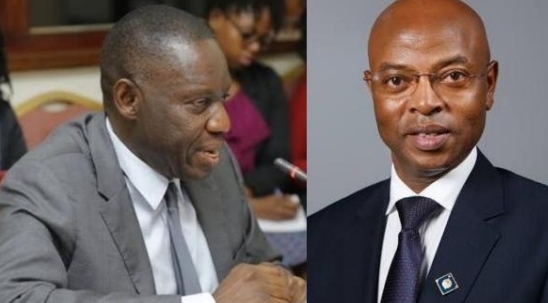In a significant leadership transition, Michael Atingi-Ego has been appointed as the new Governor of the Bank of Uganda, with Augustus Nuwagaba stepping into the role of Deputy Governor. This development follows the passing of former Governor Emmanuel Tumusiime-Mutebile in January 2022, after which Atingi-Ego had been serving as Deputy Governor.
Michael Atingi-Ego: A Seasoned Economist
Born in 1965, Michael Atingi-Ego is a distinguished Ugandan economist with an extensive background in both national and international financial institutions. He holds a bachelor’s degree in Economics from Makerere University, a Master of Arts in Economics from Cardiff Business School, and a Ph.D. in Economics from the University of Liverpool. His career began at the Bank of Uganda, where he ascended to the position of Executive Director of Research. In 2008, he joined the International Monetary Fund (IMF) as Deputy Director of the African Department, contributing significantly to monetary policy frameworks in developing countries. In September 2018, he was appointed Executive Director of the Macroeconomics and Financial Management Institute of Eastern and Southern Africa (MEFMI) in Harare, Zimbabwe.
Augustus Nuwagaba: A New Deputy Governor
Augustus Nuwagaba, the newly appointed Deputy Governor, brings a wealth of experience in economics and public policy. While specific details about his background are currently limited, his appointment is anticipated to complement the leadership at the central bank, contributing to Uganda’s economic stability and growth.
The appointments come at a critical juncture for Uganda’s economy. In 2024, under Atingi-Ego’s stewardship as Deputy Governor, the Bank of Uganda implemented several measures to stabilize the economy. These included adjusting the Central Bank Rate to manage inflation, strengthening the exchange rate, modernizing financial systems, and promoting financial inclusion. Notably, Uganda maintained one of Africa’s lowest and most stable inflation rates during this period.
However, the central bank has also faced challenges, including a significant fraud incident involving erroneous international debt payments amounting to UGX 60 billion. The incident prompted scrutiny from lawmakers and highlighted the need for enhanced oversight and governance within the institution.
![]()























